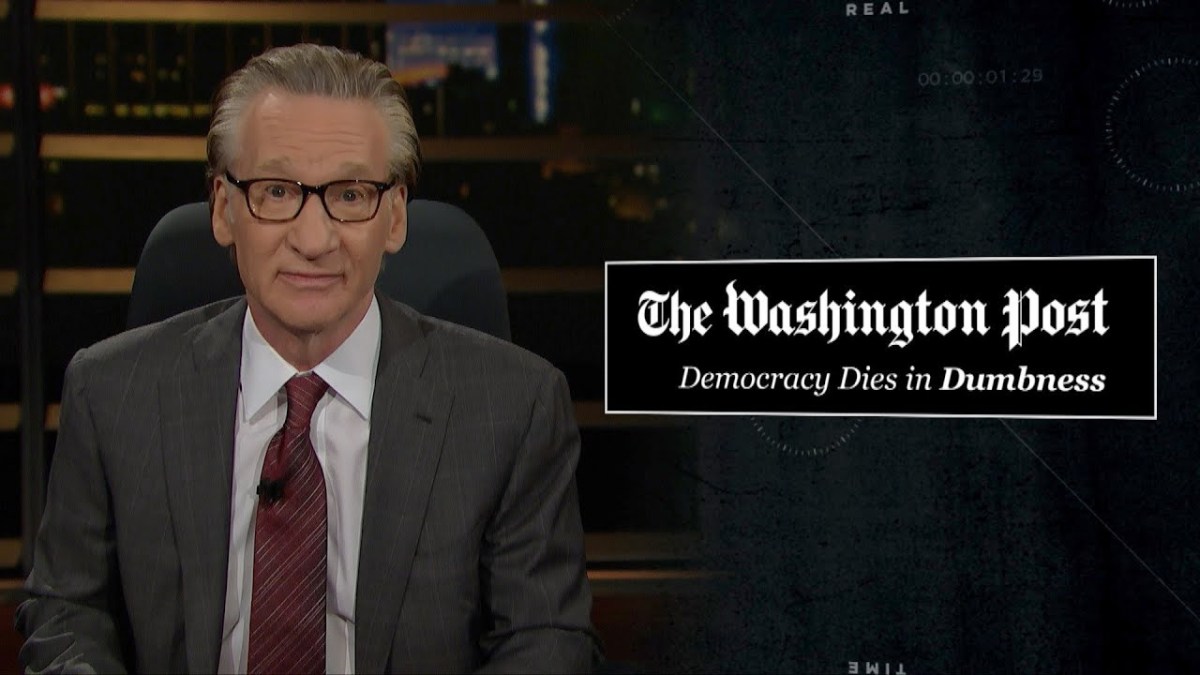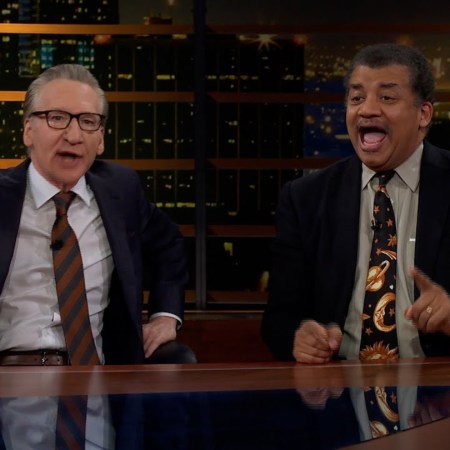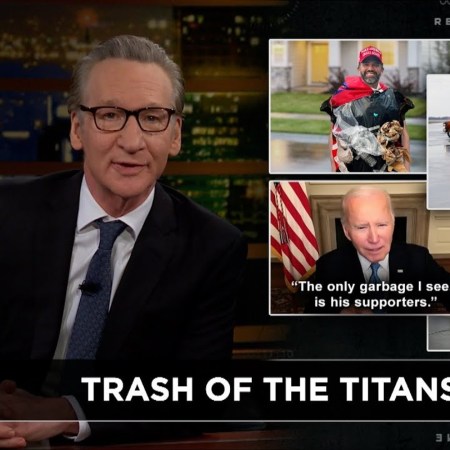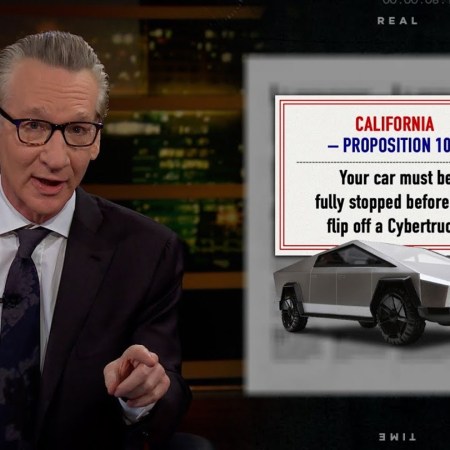The latest episode of Real Time With Bill Maher found the show’s host opening his monologue with Father’s Day jokes, which segued to riffs on Nick Cannon and Herschel Walker. Maher pivoted from there to a familiar issue: the state of the economy, with Maher observing that the stock market is falling and inflation is growing. “Are we sure that Russia didn’t put the sanctions on us?” he asked. He did see one bright side in this, though — people aren’t asking you to buy cryptocurrency as much.
The monologue continued through an array of domestic politics, including Maher imagining what a movie of the events of January 6th might look like — and venturing into some of the nastier primary campaigns occurring in the lead-up to this year’s midterm elections.
Maher’s first guest was screenwriter, actor and director Danny Strong — most recently of the acclaimed miniseries Dopesick. Maher asked Strong if he thought that his work — which often deals with contemporary political issues — has had an impact off-screen. Strong pointed to the removal of the Sackler name from many museums as one sign of change.
Maher and Strong discussed the relationship between doctors and opioids — and the factors that led doctors to prescribe opioids, which led to a national crisis. Maher drews parallels between opioids and tobacco — with Strong arguing that the opioid epidemic was much worse, in terms of what the industry knew and when they knew it.
Their conversation took on a more overtly political framework from there, with both men expressing their frustration over former members of Congress working as lobbyists for the pharmaceutical industry. Maher then asked Strong about the geographical spread of the opioid epidemic. “They’re like Elvis — they didn’t think they were drug addicts, because a doctor was prescribing them,” Maher said.
From there, the show moved into its panel discussion phase. Joining Maher were Krystal Ball and James Kirchick; the January 6 hearings were the first subject up for discussion. Ball took a higher-level approach, seeking to explore the root causes of some of the issues at hand, while Maher was more eager to see Donald Trump prosecuted. Kirchick took a different perspective, saying, “I would be very careful about how we approach this.”
“Trump is a symptom of a deep rot in our society,” Ball argued — and made a case that deeper societal issues needed to be looked into and addressed. She continued to make this argument, even as Maher pushed back somewhat — and tied it in to the phenomenon of Democrats trying to face off against more extreme Republican nominees. Ball made the eminently understandable case that this could backfire in a big way.
Maher went on to address the case of Washington Commanders defensive coordinator Jack Del Rio — including stating that he’d like to debate him — and expressed his frustration that Del Rio had been fined for his comments about the events of January 6, 2021. “It’s not a crime to have a sh*tty take,” Ball said.
In the second half of the panel, conversation turned to Joe Biden’s approval ratings. Not to put too fine a point on it, but things got intense, with Ball and Kirchick verbally clashing on a number of policy areas. Ball also brought up one instance of government intervention during the pandemic – the Federal Reserve putting money into the financial markets to keep them stable — which neither of the other participants seemed all that familiar with.
Overtime ended up covering a lot of ground, including Kirchick discussing what he had learned when researching the Reagan administration for his book. The bulk of the segment used CNN as a springboard to talk about cable news and opinion journalism, before closing on a question for Strong — did he have plans to make a film about the 2020 election? He said that he and frequent collaborator Jay Roach had been talking about it, but weren’t sure about how best to translate certain key figures to film.
New Rules found Maher quipping about commuting during wildfire season and unimpressive drug busts. Maher went on to propose that, should two fathers wearing “World’s Greatest Dad” shirts meets, they’d have to “fight to the death.”
The bulk of the segment, though, followed the recent controversy at the Washington Post that followed reporter Dave Weigel retweeting a joke. Maher summarized the controversy, then went on to hold it up as an example of many Millennials being “overly sensitive, overly fragile and having no sense of priorities.”
Maher went on to argue that this particular story had resonated because “it’s a story we recognize.” He went on to cite the 50th anniversary of the Watergate break-in, and wondered whether the current iteration of the Post would be capable of handling such a story today. It was an ominous ending for the segment, and for the episode as a whole.
Thanks for reading InsideHook. Sign up for our daily newsletter and be in the know.


















